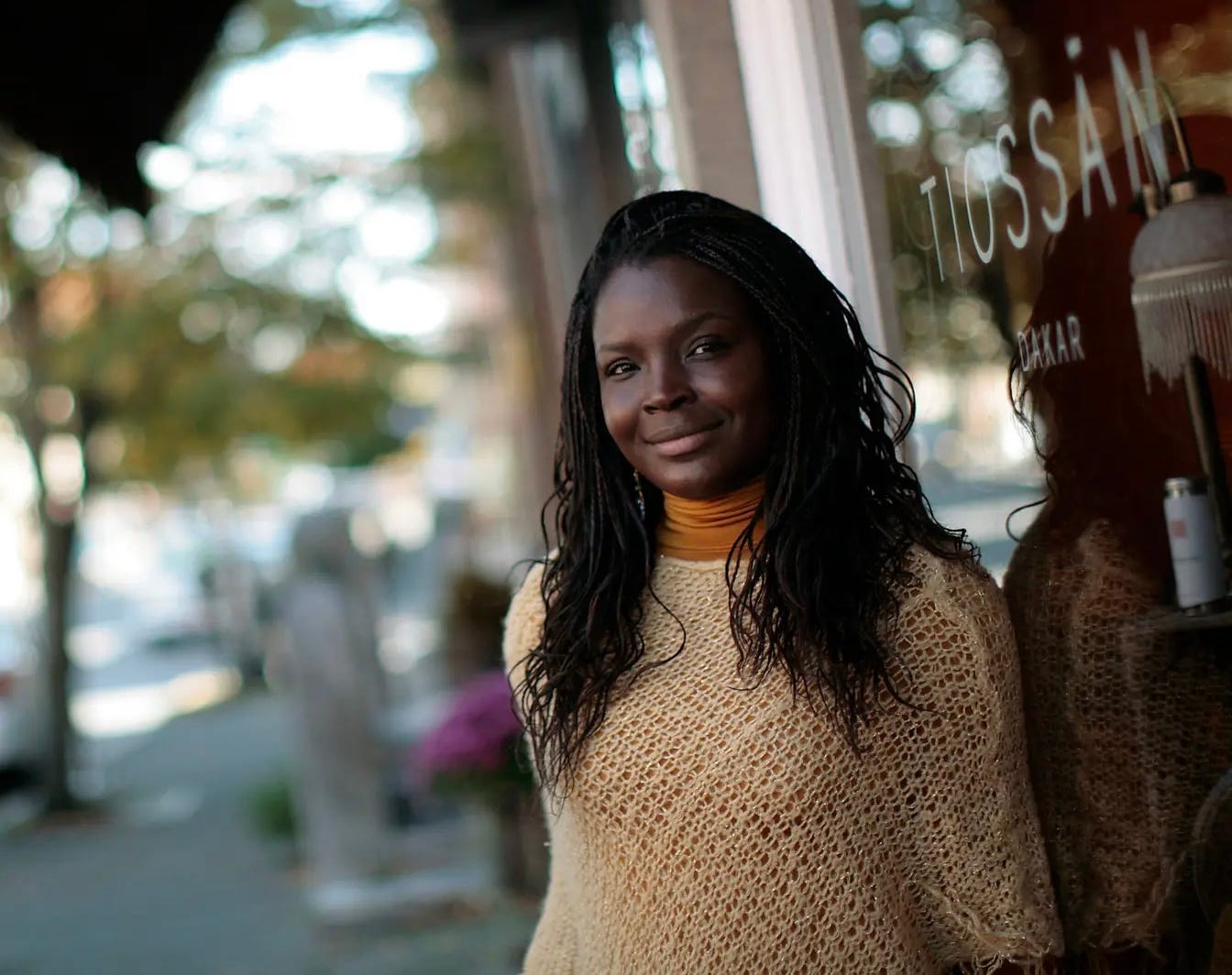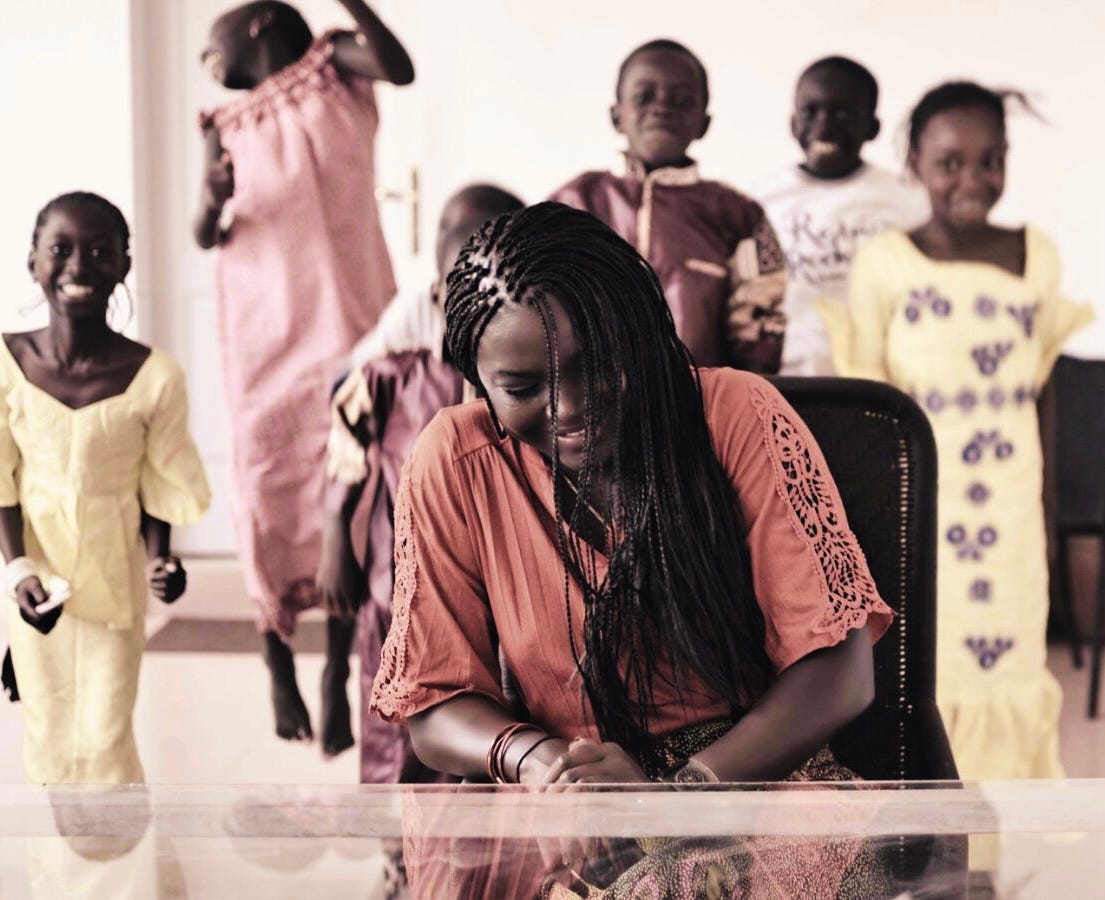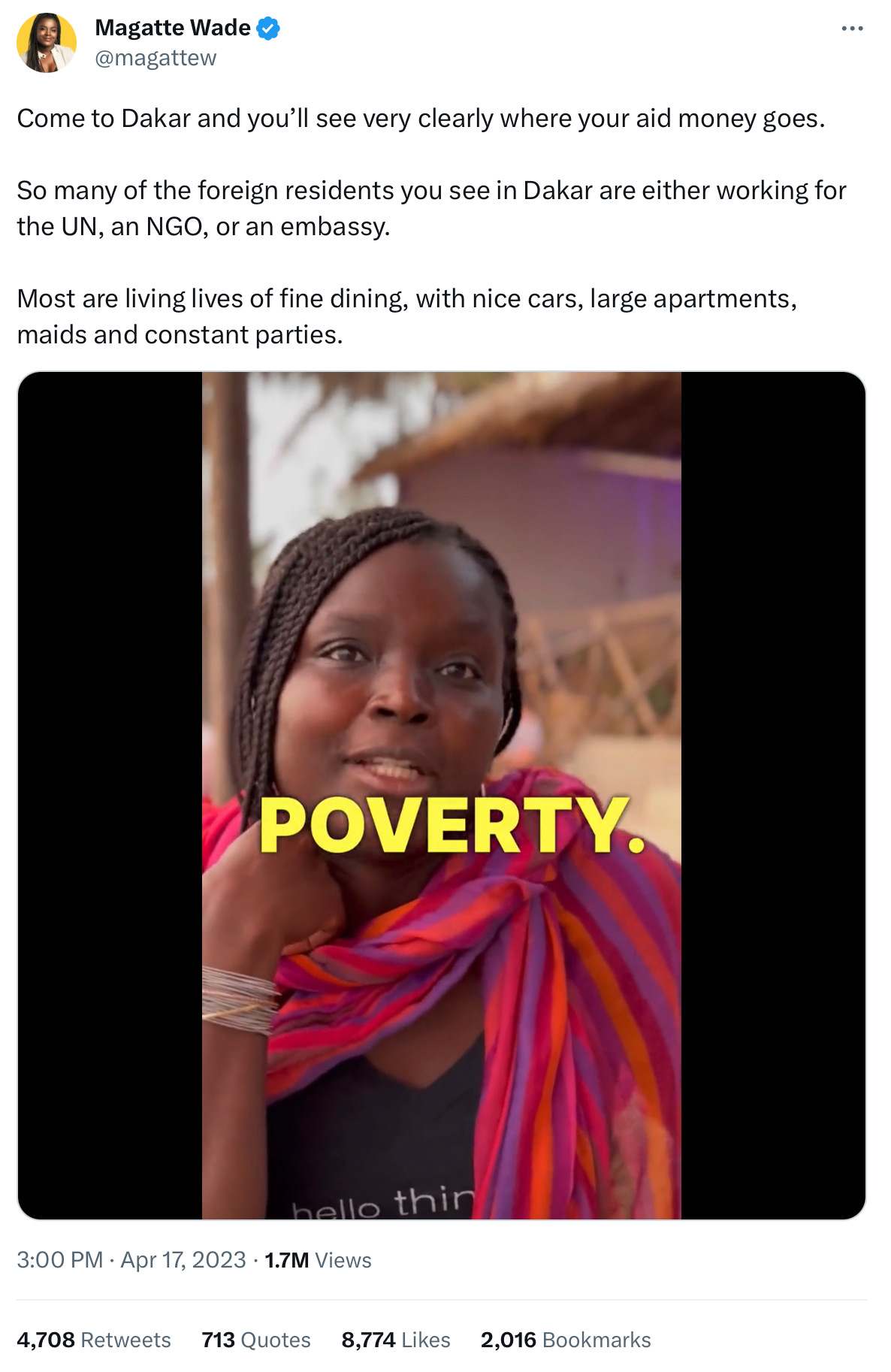Africa's Renaissance: Embracing Entrepreneurship Over Pity
Africa got plenty of publicity. It only hurt us.
There IS such a thing as bad publicity.
Years of “help the poor, starving African children” campaigns have given the world the impression that we are little more than an outlet for charity.
In many Americans' eyes, we’re a drain on global resources and in constant need of aid. We’re the continent of bloated bellies, civil wars, and health crises.
Our publicity made us synonymous with helpless, hopeless people.

I won’t waste your time telling you how wrong that image is. I won’t give you statistics about the tens of millions of frustrated university graduates in Africa and all our invisible talent that goes uncelebrated. Every African knows the reality of our circumstances.
But let’s be honest... Reality is irrelevant because this pity branding has made it almost impossible for Africans to flourish.
Starting a business is exponentially harder for Africans because their greatest challenges exist in people’s minds.
Can you imagine pitching your business to a Western investor, but instead of talking about KPIs and ROIs, you spend your time refuting stereotypes about your homeland?
Can you imagine having to constantly reassure people that your workers are reliable and that Africans are capable of creating high-quality products?
Can you imagine how hard it is to convince people that your ideas are worthwhile, not in spite of your African-ness, but because of it?
I speak from experience. When I created Tiossan, my goal was to change the perception of Africa by creating a high-end African skin care line. It seemed reasonable to me, but even the most well-meaning American investors couldn’t wrap their heads around it.

I had a meeting with a retired-at-forty-something who had a passion for helping the poor. He seemed like the perfect fit for our company, but I soon learned that he had zero interest in investing with us because he couldn’t see how efforts such as Tiossan would lift Africa up.
“But! But! But!...” he said. “Aren’t we going to dig some wells? Or build some schools?!?”
It was almost impossible not to roll my eyes. What was this man smoking? I was creating jobs in Africa and promoting high-end African products that would make people see Africa in a new light. That was lifting Africa up.
But no. He’d been conditioned by bad publicity to believe that he had to save the Africans. He was taught that aid is what will help Africa, not businesses.
It took me a while to recover from that meeting. How did we get here? How did we come to believe that the only way to help Africa is digging wells and building some mud schools?
This man had spent his life trying to end poverty, and yet a simple thought had never occurred to him:
Creating jobs will end poverty.
You see, there were no “Empower the Africans” commercials.
There were no “Create Better Business Environments for African Entrepreneurs” ad campaigns.
You’ve been fooled into thinking Africans needed saving.
You must replace your old false beliefs with the truth:
Africans will save themselves, as soon as they have the right environment to create good jobs.
Good jobs allow people to provide for their children’s education. Good jobs instill a sense of dignity. Good jobs create sustainable, long-term improvements in people’s lives.
And when I say “the power to create good jobs,” I’m not talking about giving a woman a microloan to buy chickens so she can sell a few eggs. That’s better than nothing, but microfinance rarely makes anyone flourish. Many microloan recipients would, given the choice, prefer to have the job. Most micro-entrepreneurs are necessity entrepreneurs, and not opportunity entrepreneurs.
Think bigger. Think of entire African nations, suddenly empowered to create real businesses that can thrive and innovate on a global scale.
Instead of $15 for chickens, why aren’t we investing in African women who can run $15 million companies, or $100 million companies?
Why aren’t we investing in the entrepreneurs who will create jobs for other Africans and give them a path, not only to subsistence, but to real opportunities?
The only reason people are so focused on chickens and wells and mud schools is because they’ve bought into the pity propaganda.
I can see why people would fall for it, because it’s horrible to see suffering and do nothing about it. But for the sake of sustainable and lasting prosperity for all Africans, we must reach beyond poverty alleviation and subsistence living.
If you want to invest in Africa and make a difference, support people in their power.
Share the tools and funding to become entrepreneurs. Stop funding sob-story nonprofits and start supporting African innovators, creators, and wealth generators.
Put money in the hands of enterprising Africans instead of giving to Westerners who, too often, dole it out to the “needy” poor. (Or, who refuse to dole it at all. Donors often, unwittingly, end up financing the lavish lifestyles of administrators.)
Ask yourself, what’s the real goal of investing in Africa?
Is it to make donors feel less guilty about images of fly-bitten children?
Is it to make them feel good for handing out some hens or free pairs of shoes?
Or is it to help pave the way for Africans to show up on the world stage as the proud, powerful and talented people that we are?
Pity has no place in empowerment. And frankly, the most forward-looking caring people know it. They can see that true empowerment lies in equal access to opportunity, free trade, business investment, and boundless faith in human potential.
Our continent is primed for an economic revolution. The question is whether the rest of the world is ready to drop the pity brand and embrace the future.
The African renaissance is upon us, and African entrepreneurs are ready to take the lead.
Join us in our movement to unleash Africa’s Bright Future:






So makes sense. Africans too should form investment blocs to jointly invest in Africa. We don’t have a much as the West but we must demonstrate our belief in Africa to encourage others to do likewise break the pity story stereotype.
Brilliant piece. Typical passion and objectivity of Magatte Wade.
No pity party for us anymore, I have always felt it's very crucial that we prosper in whatever we are doing that's illegal in every creative way. I'm an artiste/ singer it's been a bit challenging trying to just start recording singles but in the process now thank God. Meanwhile I have always made my goat milk soap in a way because of the ash soap products out there - some of my friends are even asking for what I use on my skin that's glowing now. I can't stop until I fulfill all my predestined purposes by my creator God. Thank you so much for your post what you are doing and thank God for prospering you. Cheers